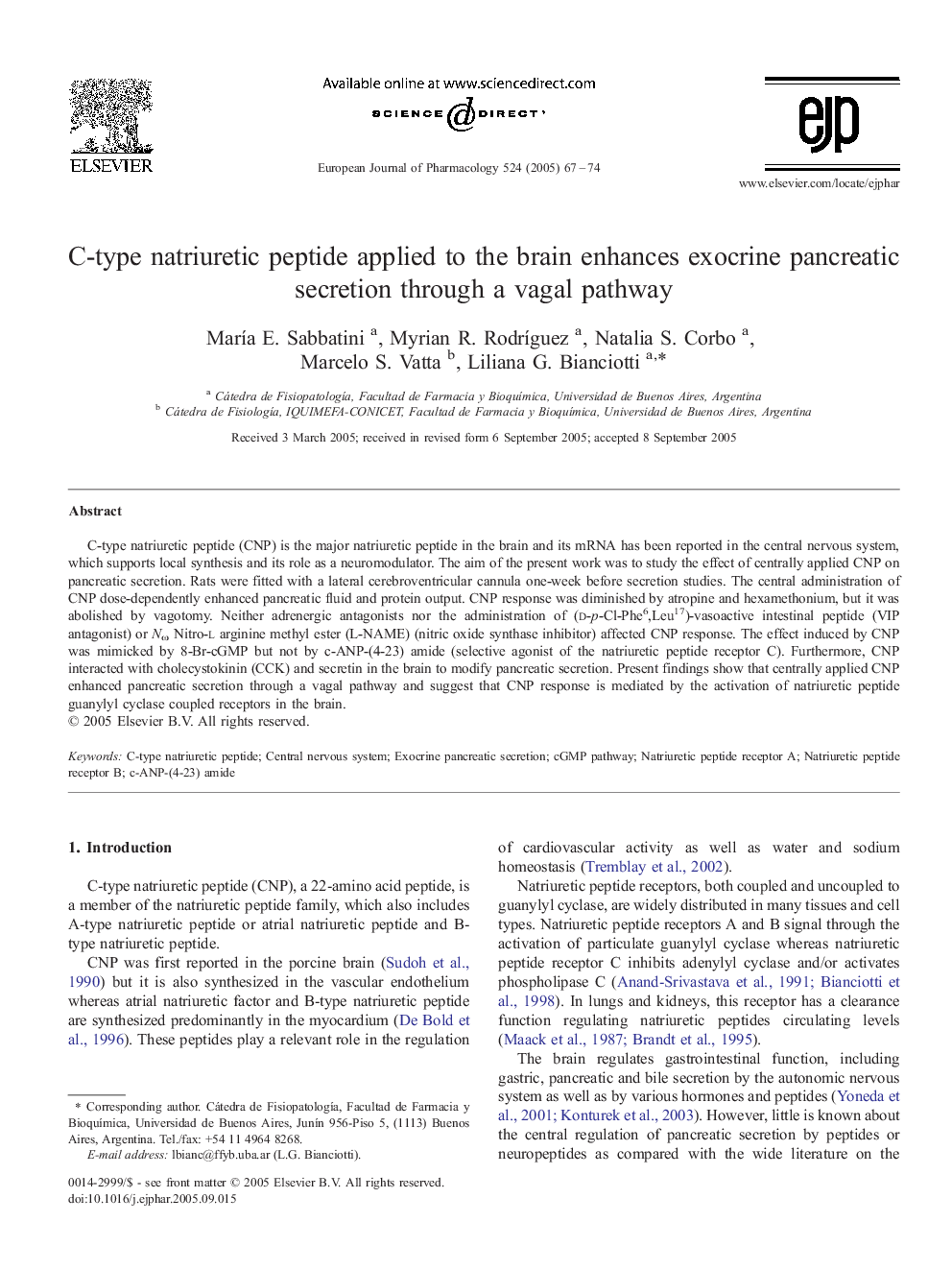| Article ID | Journal | Published Year | Pages | File Type |
|---|---|---|---|---|
| 9921017 | European Journal of Pharmacology | 2005 | 8 Pages |
Abstract
C-type natriuretic peptide (CNP) is the major natriuretic peptide in the brain and its mRNA has been reported in the central nervous system, which supports local synthesis and its role as a neuromodulator. The aim of the present work was to study the effect of centrally applied CNP on pancreatic secretion. Rats were fitted with a lateral cerebroventricular cannula one-week before secretion studies. The central administration of CNP dose-dependently enhanced pancreatic fluid and protein output. CNP response was diminished by atropine and hexamethonium, but it was abolished by vagotomy. Neither adrenergic antagonists nor the administration of (d-p-Cl-Phe6,Leu17)-vasoactive intestinal peptide (VIP antagonist) or NÏ Nitro-l arginine methyl ester (L-NAME) (nitric oxide synthase inhibitor) affected CNP response. The effect induced by CNP was mimicked by 8-Br-cGMP but not by c-ANP-(4-23) amide (selective agonist of the natriuretic peptide receptor C). Furthermore, CNP interacted with cholecystokinin (CCK) and secretin in the brain to modify pancreatic secretion. Present findings show that centrally applied CNP enhanced pancreatic secretion through a vagal pathway and suggest that CNP response is mediated by the activation of natriuretic peptide guanylyl cyclase coupled receptors in the brain.
Keywords
Related Topics
Life Sciences
Neuroscience
Cellular and Molecular Neuroscience
Authors
MarÃa E. Sabbatini, Myrian R. RodrÃguez, Natalia S. Corbo, Marcelo S. Vatta, Liliana G. Bianciotti,
